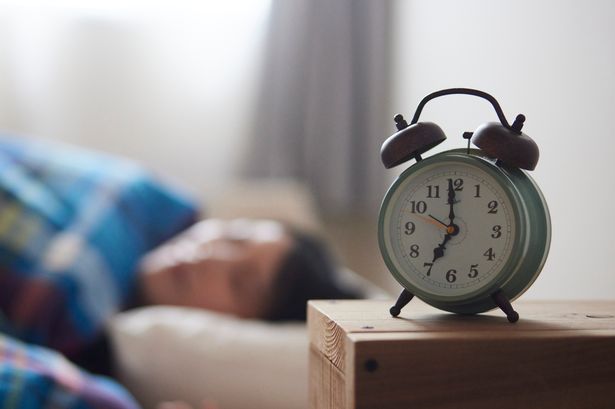Households across Ireland are being urged to adjust their routines ahead of the clocks going back this weekend as daylight saving time ends. Alarm clock on bedside table(Image: Getty Images)
Alarm clock on bedside table(Image: Getty Images)
With autumn now in full swing, the signs of the changing season are everywhere. Crisp mornings, earlier sunsets and steadily dropping temperatures are reminders that winter is on the horizon.
Alongside the cooler weather, another seasonal shift is about to affect every household in Ireland – the end of daylight saving time. While many welcome the extra hour of sleep that comes when the clocks go back, the change also brings darker evenings and shorter afternoons.
This year, the clocks in Ireland will go back one hour on Sunday, October 26. The last adjustment was back on Sunday, March 30 when clocks moved forward. By tomorrow evening, sunset will slip from 6.06pm to 5.04pm, giving a clear signal that winter is approaching.
Most modern devices, including smartphones and smartwatches, will update automatically at 2am on Sunday, resetting to 1am. Traditional clocks, however, will need to be changed manually.
While an extra hour in bed seems like a bonus, health experts are urging households to take small steps to make the transition smoother. Sudden shifts in time can affect the body’s internal clock, impacting sleep quality, mood and energy levels.
Sleep specialists recommend adjusting bedtime gradually in the lead up to the change. A simple 15 minute shift can help the body adapt naturally.
Experts at Sleepeezee explained: “One of the best ways to ease into the clock change is to adjust your sleep schedule beforehand. Try going to bed 15 minutes earlier each night to allow your body to adjust gradually to the lost hour of sleep. This small change will help minimise the shock to your internal body clock and make the transition smoother.
“Consistency is key when it comes to maintaining a good sleep schedule. Going to bed and waking up at the same time each day, even on weekends, will help reinforce your body’s natural circadian rhythm. Your body will then naturally know when it’s time to wind down, making it easier to fall asleep, even when the clocks shift.”
The practice of “falling back” was originally introduced to make better use of natural daylight. While mornings become brighter and grant us an extra hour of light, evenings become darker sooner, reshaping our routines as the season turns.
All EU member states adjust their clocks at this time, with Iceland the only exception, remaining on Western European Time year-round.
The European Union voted in 2019 to potentially end Daylight Saving Time altogether after 2021, following a survey showing most people would prefer not to switch clocks twice a year. However, the decision was delayed due to the Covid pandemic.
EU institutions have not made progress on implementing the decision, and the European Commission has said that it does not plan to submit a new proposal on the matter to the Parliament.
Looking ahead, clocks will go forward next year on Sunday, March 29, and back on Sunday, October 25 – continuing the familiar seasonal cycle.
Subscribe to our newsletter for the latest news from the Irish Mirror direct to your inbox: Sign up here.
